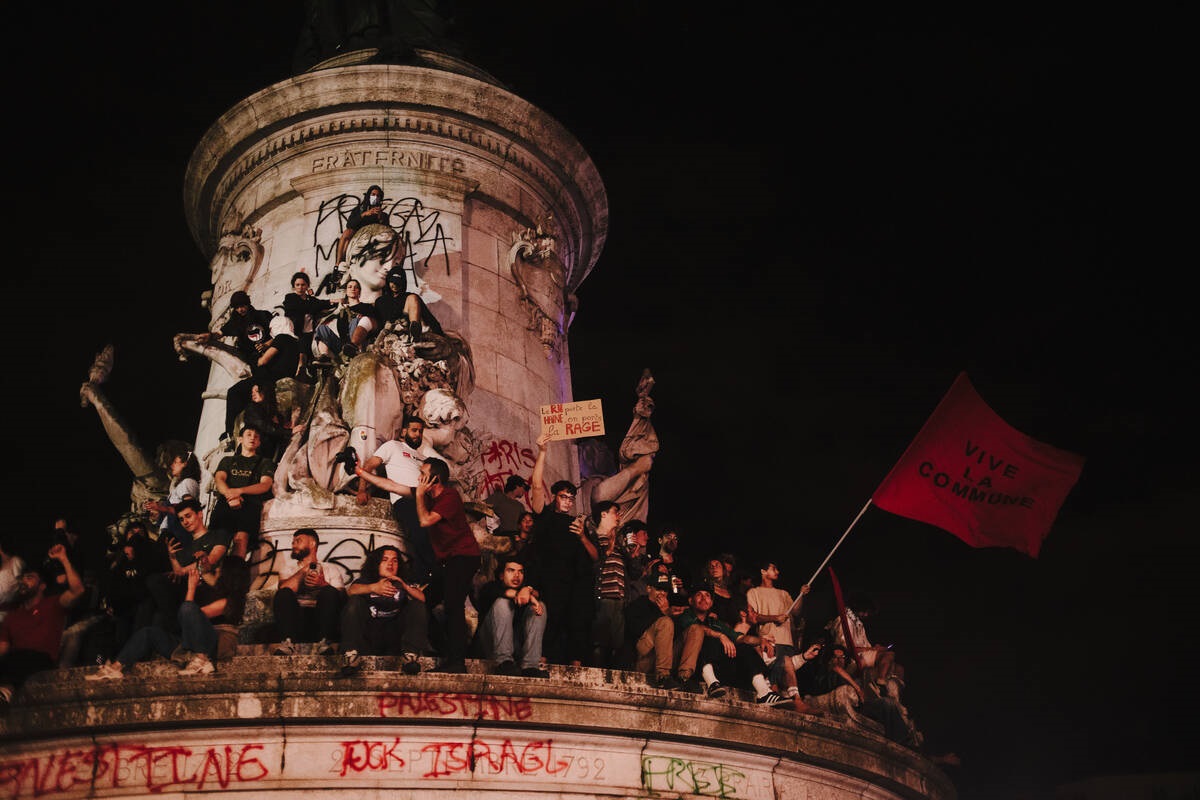
Published 01/07/2024 10:13 | Edited 01/07/2024 10:22
For the first time in history, Réunion National (RN), an extreme right-wing party, won this Sunday (30), with 29.25% of the votes, the first round of early legislative elections in France by President Emmanuel Macron. The left-wing New Popular Front (NFP) obtained 27.99% of the votes and came second, and called for the formation of a republican coalition to stop Marine Le Pen and Jordan Bardella in the second round, scheduled for next Sunday ( 7).
The liberal right bloc led by Macron, the Renaissance party (EN), fell to 20.04% of the votes and only obtained the third best result. The Republicans (LR), a traditional right-wing party, were the fourth force in the first round, confirming their decline with 6.57% of the votes.
After the estimates were published shortly after the elections closed at 8pm Brasília time, leaders of the NFP and Renascimento called for a new cordon sanitaire against the far right.
Macron’s group announced, this Monday (1), that it will withdraw from the second round all candidates who come in 3rd place this Sunday. In a statement, the party said that the acronyms cannot “leave the keys to the country to the extreme right” and that the National Reunion is “an unacceptable threat”.
Jean Luc Mélenchon, leader of the left-wing coalition, also stated that he instructed the candidates who came in third to withdraw their candidacies next Sunday. “Not one vote, not one more seat for RN,” he said.
A large demonstration took to the streets of the capital, Paris, shortly after the publication of the estimates. The protest was called by the Nova Frente Popular and took place in Praça da República, in the city center.
The left unites and takes to the streets to stop the advance of the extreme right in France. Fascism must be fought relentlessly! pic.twitter.com/IOb8AF29ht
— Jandira Feghali 🇧🇷🚩 (@jandira_feghali) June 30, 2024
Thousands of Parisians protest against the far right and demand clarification from Macron “There is no longer any way out of a fundamental choice in this country. Now is the time: it’s us or them, there’s nothing in between. And we’re not here just to create a barrier, we’re here because we want to change everything,” Mélenchon exclaimed.
With flags of the coalition, Palestine or the rainbow representing the LGBT movement, thousands of protesters chanted songs such as “we don’t want fascists”, “we are all anti-fascists”, “they shall not pass” or the song Bella Ciao.
The parties are competing for 577 seats in the National Assembly, which was dissolved by Macron on June 9 following the results of the European elections. France was the country where the far right grew the most after the vote for the European parliament.
Macron considered it necessary to dissolve parliament and call new legislative elections, in what he called “times for clarification” and that the threats to France’s “cohesion” require “clarity in the debate”.
Today with 88 deputies, RN can reach between 230 and 280 seats in the National Assembly. To win the majority, 289 seats are needed. The NFP could obtain between 150 and 180 seats. Currently, the left-wing bloc parties have 150 deputies.
The Macron government’s current majority is expected to fall from the current 250 deputies to somewhere between 60 and 100, putting an end to the brief cabinet of Prime Minister Gabriel Attal, 35, in power since January.
Under France’s semi-presidential political system, voters elect the parties that will make up Parliament. The party or coalition that receives the most votes then appoints the prime minister, who, in the European country, governs jointly with the president — the latter is elected in direct presidential elections separate from legislative elections and who, in practice, is the one who has the most prominence at the head of the government.
If the president and prime minister are from different political parties, France will enter a so-called “cohabitation” government, which has only happened three times in the history of the European country and which could paralyze Macron’s government. This is because, in this case, the prime minister assumes the role of running the government internally, proposing, for example, who the ministers will be.
Source: vermelho.org.br

